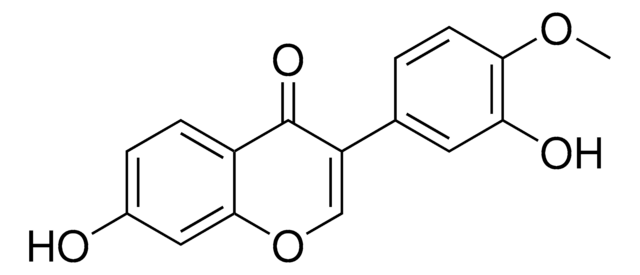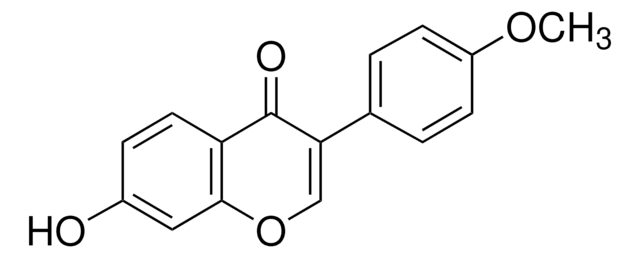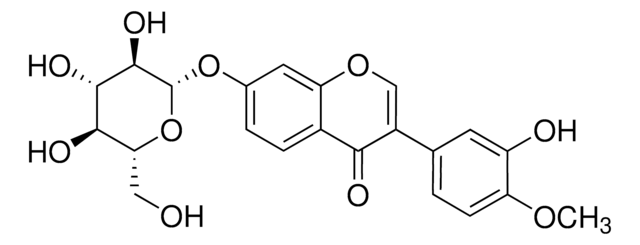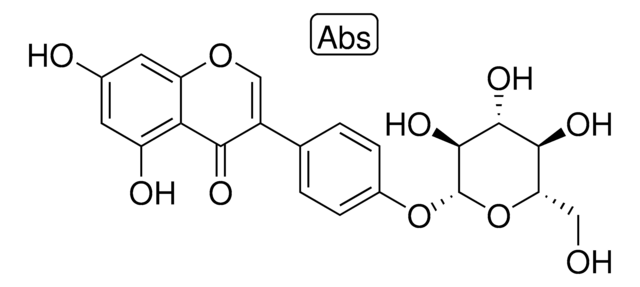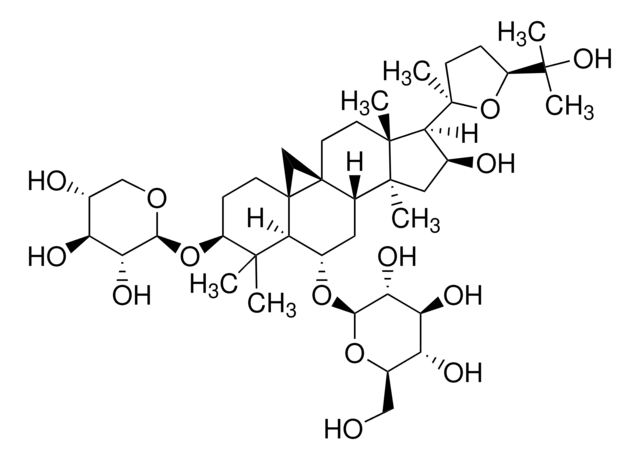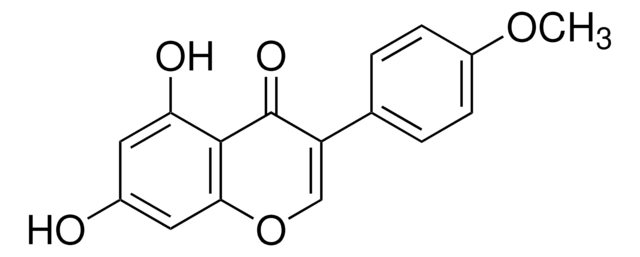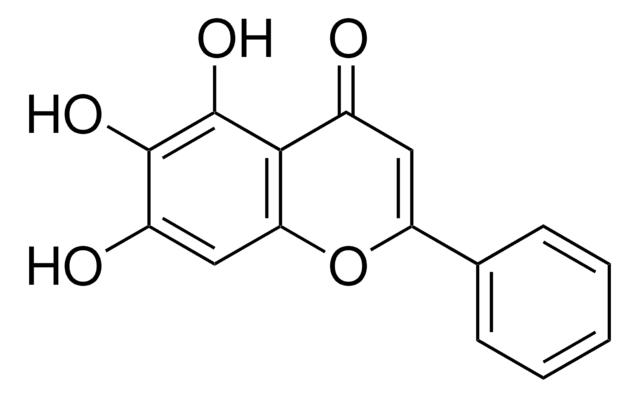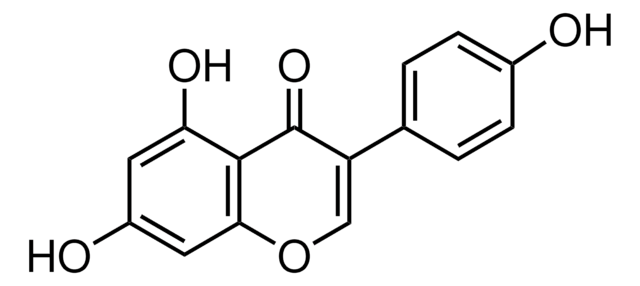B9938
Calycosin
≥98% (HPLC)
Synonym(s):
3′,7-Dihydroxy-4′-methoxy-isoflavone, 3′-Hydroxyformononetin, Cyclosin
About This Item
Recommended Products
Assay
≥98% (HPLC)
form
powder
color
white to light yellow
solubility
methanol: 1 mg/mL, clear, colorless
application(s)
metabolomics
vitamins, nutraceuticals, and natural products
storage temp.
2-8°C
SMILES string
O=C1C(C(C=C2)=CC(O)=C2OC)=COC3=CC(O)=CC=C13
InChI
1S/C16H12O5/c1-20-14-5-2-9(6-13(14)19)15-8-12(18)11-4-3-10(17)7-16(11)21-15/h2-8,17,19H,1H3
InChI key
QAGGICSUEVNSGH-UHFFFAOYSA-N
Looking for similar products? Visit Product Comparison Guide
Related Categories
General description
Application
- to study its effect on the repression of glioblastomas by having an inhibitory effect on the expression of tyrosine-protein kinase Met (c-Met)
- to analyze its effect on the growth of nasopharyngeal carcinoma cells by modulating the long non-coding RNA, Ewing sarcoma-associated transcript 1(EWSAT1)
- to evaluate its effect on the left ventricular ejection fraction in rat model with myocardial ischemia
Biochem/physiol Actions
Signal Word
Warning
Hazard Statements
Precautionary Statements
Hazard Classifications
Skin Sens. 1
Storage Class Code
11 - Combustible Solids
WGK
WGK 3
Flash Point(F)
Not applicable
Flash Point(C)
Not applicable
Certificates of Analysis (COA)
Search for Certificates of Analysis (COA) by entering the products Lot/Batch Number. Lot and Batch Numbers can be found on a product’s label following the words ‘Lot’ or ‘Batch’.
Already Own This Product?
Find documentation for the products that you have recently purchased in the Document Library.
Customers Also Viewed
Our team of scientists has experience in all areas of research including Life Science, Material Science, Chemical Synthesis, Chromatography, Analytical and many others.
Contact Technical Service